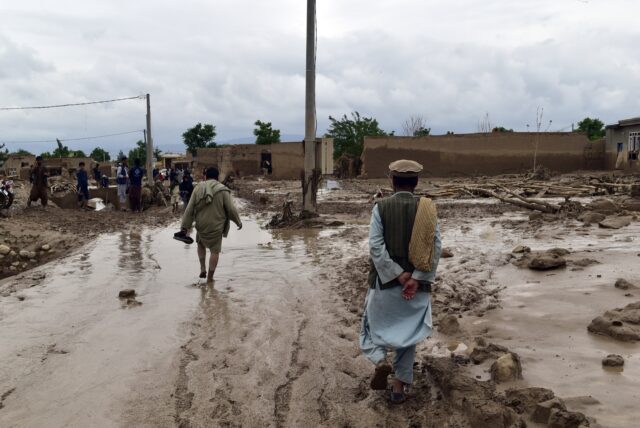Survivors of the devastating floods that struck northern Afghanistan last week are still searching for their missing loved ones and burying their dead
Families still looking for missing loved ones after devastating Afghanistan floods killed scoresBy RAHIM FAIEZAssociated PressThe Associated PressISLAMABAD
ISLAMABAD (AP) — When he heard that devastating floods hit his village in northern Afghanistan last week, farmer Abdul Ghani rushed home from neighboring Kunduz province where he was visiting relatives. When he got home, he found out that his wife and three children had perished in the deluge.
Two of his sons survived but another son, who is 11, is still missing. “I couldn’t even find the road to my village,” he said, describing how he turned back and went another way to reach his district of Nahrin in Baghlan province.
Across Baghlan, others like Ghani and survivors of the disaster were still searching for their missing loved ones and burying their dead on Monday.
“Roads, villages and lands were all washed away,” Ghani said. His wife, his 7-year-old and 9-year-old daughters and a 4-year-old son died.
“My life has turned into a disaster,” he said, speaking to The Associated Press over the phone.
The U.N. food agency estimates that the unusually heavy seasonal rains in Afghanistan left more than 300 people dead and thousands of houses destroyed, most of them in Baghlan, which bore the brunt of floodings on Friday.
Survivors have been left with no home, no land, and no source of livelihood, the World Food Organization said. Most of Baghlan is “inaccessible by trucks,” said WFP, adding that it is resorting to every alternative it can think of to get food to the survivors.
U.N. Secretary-General António Guterres has expressed condolences to the victims, said a statement on Sunday, adding that the world body and aid agencies are working with the Taliban-run government to help.
“The United Nations and its partners in Afghanistan are coordinating with the de facto authorities to swiftly assess needs and provide emergency assistance,” according to the statement.
The dead include 51 children, according to UNICEF, one of several international aid groups that are sending relief teams, medicines, blankets and other supplies. The World Health Organization said it delivered 7 tons of medicines and emergency kits to the stricken areas.
Meanwhile, the U.N. migration agency has been distributing aid packages that include temporary shelters, essential non-food items, solar modules, clothing, and tools for repairs to their damaged shelters.
The latest disaster came on the heels of a previous one, when at least 70 people died in April from heavy rains and flash floods in the country. The waters also destroyed about 2,000 homes, three mosques and four schools in western Farah and Herat, and southern Zabul and Kandahar provinces.

COMMENTS
Please let us know if you're having issues with commenting.